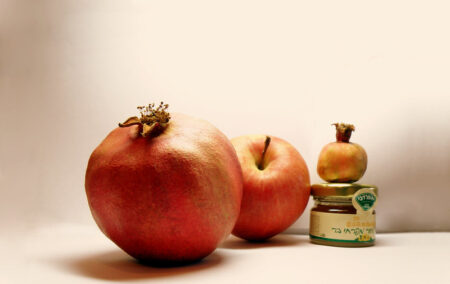How do you celebrate renewal when missiles are raining down on your home?
As families across Israel prepared for festivities, millions were abruptly awakened by sirens blaring warnings of incoming attacks. Panic spread as citizens rushed to bomb shelters, confronting a reality far removed from the holiday spirit. This assault was not merely a military manoeuvre; it was a calculated attempt to undermine the very essence of life during this sacred time. This mirrors the events of October 7, 2023, which were also aligned with a significant Jewish holiday, Simchat Torah, marking both an end and a new beginning.
A day that should have been filled with joy and family gatherings turned into a nightmarish reminder of ongoing threats to the Jewish homeland. On October 1st, 2024, Iran launched around 180 missiles at Israel, coinciding ominously with the eve of Rosh Hashanah and just six days before the tragic anniversary of October 7, 2023.
The significance of October 7 still looms large in the minds of Israelis. It marked a horrific day when over 4,300 rockets were launched from Gaza into Israel, followed by a violent incursion by Hamas, other Palestinian Nationalist armed groups, and some Gaza civilians, resulting in the tragic killing of 1,139 people and the taking of 250 hostages. According to France 24, of the 1,139 people killed, 695 were Israeli civilians (including 38 children), 71 were foreign nationals, and 373 were members of the security forces. Such acts of aggression, particularly from Iran and its proxies like Hezbollah and Hamas which form part of what Iran calls its “axes of resistance” are strategically timed to coincide with Jewish holidays, a grim tactic aimed at breaking the Jewish spirit, as Jews make up 73.6% of the Israeli population.
While the damage from the October 1st attack was mitigated by Israel’s Iron Dome defence system and American military support, the impact on civilian life cannot be underestimated. Tragically, one civilian lost his life in the West Bank, and many others in Israel were injured in the rush for safety. These events cast a long shadow over what should have been a time of renewal and hope.
Religious holidays hold immense significance for every community, serving as vital moments for reflection, connection, and tradition. These occasions, such as Rosh Hashanah and Simchat Torah, are not just about rituals; they embody the collective memory and cultural identity of the Jewish people. Observing these holidays fosters a sense of community and belonging, allowing families and friends to gather, share meals, and engage in spiritual practices that have been passed down through generations. The inability to observe these sacred times due to violence, insecurity, or external threats can lead to profound emotional and psychological distress. It disrupts not only personal spiritual growth but also the communal bonds that are essential for resilience and unity, leaving individuals feeling isolated and disconnected from their heritage. In times of crisis, the loss of these opportunities can amplify feelings of vulnerability, reminding the community of the fragility of their existence and the enduring need for peace and safety to uphold their traditions.
Just as I wrapped up my birthday celebrations in South Africa on the night of the missile attack, the news weighed heavily on my heart. I was struck by the stark contrast between my celebration and the chaos in Israel. The ongoing tensions between Iran, Hezbollah, Hamas, and Israel remind us that stability in the Middle East remains fragile. Reflecting on how religious days are clouded by war and destruction made me acutely aware of the freedoms I often overlook, the privilege of living in a country not in active conflict and my ability to look forward to religious and personal celebrations without fear of terror. This perspective made me see the looming war in the Middle East as not only dangerous for life but also for spiritual and religious practices and sites.
My wish for the Jewish New Year resonates with many: that Israel prevails in its struggles, that hostages are returned safely, and that peace becomes a reality. Amidst the chaos, the resilience of the Israeli spirit shines through, reminding us all of the enduring strength of hope and unity. My hope is that in 2025, we’ll see a shift from missiles to actual rain falling from the Israeli sky. a symbol of hope and renewal instead of destruction.
[Photo: by RonAlmog/flickr – שנה מתוקה (A Sweet New Year) – Jewish New Year pomegranites]
The views of the writer are not necessarily the views of the Daily Friend or the IRR.
If you like what you have just read, support the Daily Friend.

